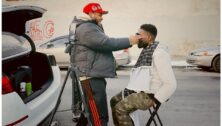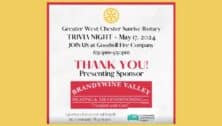Chester County Leadership: Charlie Rogers, Scout Executive, Chester County Council, Boy Scouts of America
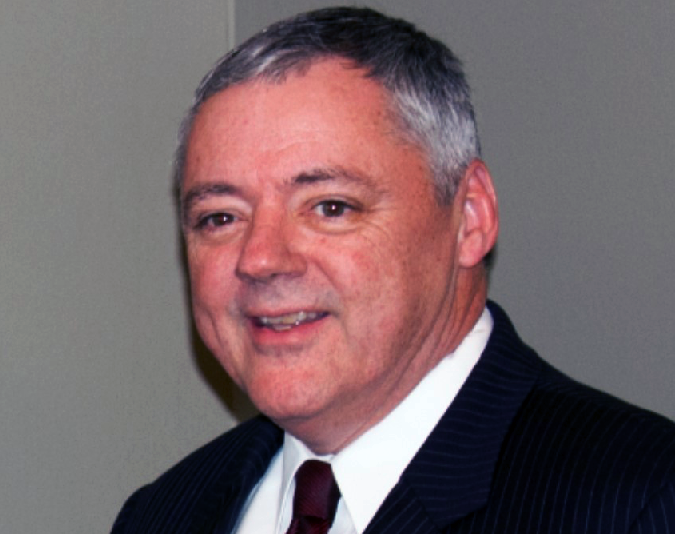
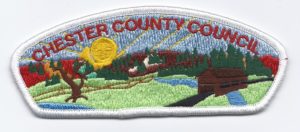 Charlie Rogers, Scout Executive, Chester County Council, Boy Scouts of America, speaks to VISTA Today about growing up outside of Boston the youngest of three boys, becoming a Cub Scouts when he was eight, deciding to make a career of scouting after attending Stonehill College, running a nuclear reactor on a submarine and being offered a higher paying job working for a power company, his rise through the ranks of scouting executives in Connecticut and New York, finding his way to Chester County in 2011 and his excitement about the new $5M Program Activity & Resource Campus (PARC) the Boy Scouts are building on Route 30 in Exton.
Charlie Rogers, Scout Executive, Chester County Council, Boy Scouts of America, speaks to VISTA Today about growing up outside of Boston the youngest of three boys, becoming a Cub Scouts when he was eight, deciding to make a career of scouting after attending Stonehill College, running a nuclear reactor on a submarine and being offered a higher paying job working for a power company, his rise through the ranks of scouting executives in Connecticut and New York, finding his way to Chester County in 2011 and his excitement about the new $5M Program Activity & Resource Campus (PARC) the Boy Scouts are building on Route 30 in Exton.
Where did you grow up Charlie?
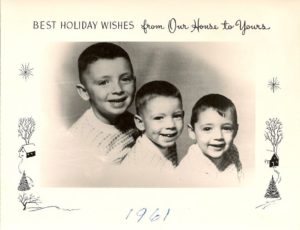
I was born in 1958, which isn’t that long ago unless you do the math! I was the youngest of three boys. I grew up in Danvers, Massachusetts a small town north of Boston and lived there until I went away to college.
My father was an elementary school principal, my mother taught for a while after college and then became an at-home mother when us kids came along. Both my parents had grown up in the Danvers area and met when they were both students at Salem State Teachers College.
What memories do you have of growing up in Danvers?
While I was growing up, Danvers was on the verge of transforming from a farming community to a bedroom community for Boston. The last of the farms were closing and becoming housing developments. I recall there being a ton of kids all of whom lived on their bikes and the town being a fun place to live.
Where was the furthest you went on your bike?
We occasionally would take a trip to the next town over, maybe seven or eight miles away, where there was a good ice cream stand.
When did you join Scouting?
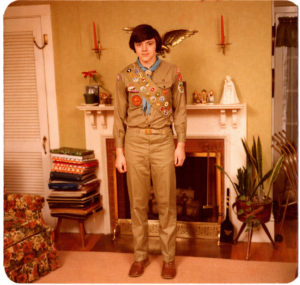
Scouts was an important part of my life when I was a kid. I joined Cub Scouts when I was eight and went all the way through high school, becoming an Eagle Scout when I was seventeen.
Aside from scouts, what activities occupied your time in high school?
I was on the track team for three seasons. I did cross country in the Fall and ran the mile and two-mile event in Winter and Spring track. In my senior year, my track coach moved me to the 600- and 1,000-yard events. I didn’t do nearly as well in those events as I had done in the distance races, so the coach moved me back to the distance events.
I did a little theater in my senior year as well. A girl I liked talked me into going out for the Senior variety show. I got a part, she didn’t, which meant the end of that beautiful relationship! The part was a bit part in a scene from The Odd Couple, but it whet my appetite, and I continued to do theater into college.
What did you take from theater that says with you today?
The ability to entertain people. The real root of my ability to entertain people was not so much theater, but Boy Scout campfires. I was pretty good at doing skits, making people laugh, and keeping boys entertained.
Other than working at summer camps, what other jobs did you have growing up?
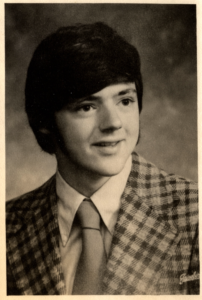
I always worked. Growing up I had a lawn care, raking leaves and shoveling snow business for a neighbor couple. I got fifty cents an hour my first year working for him! I wasn’t in it for the pay, though. I liked being outdoors. I also sold lawn fertilizer for a local hardware store.
What lessons did you take from those collective jobs?
From working at Boy Scout camps, I took away an expectation of performance. A boy scout camp is a small city, with a different group of “citizens” every week, run by a bunch of guys, all in their teens and early 20’s.
The expectation was that every boy walking into camp would have the best week of his year. My job was to make sure that happened. By the time I was 16, I was a senior member of the staff. I had responsibilities that no other part-time job could have ever given me. I developed a solid work ethic of doing whatever I had to do to make sure each boy had the best week of his year.
What kind of music were you listening to back then?
What everyone else was listening to; The Beatles, etc. Because I was so big into scouting, I was never big into music, however. Back then, the Scouts didn’t allow radios on camping trips. Plus, I was away at camp for the summer and had very little time to listen to music that I didn’t create myself.
When was it clear to you that Scouting was more than just a youthful activity for you?
When I was in high school, I met Bill Dwyer, who worked full time for the Boy Scouts. Bill was well liked as well as confident about what he did. His role model made me think about doing Boy Scouts full time.
Where did you go to college?
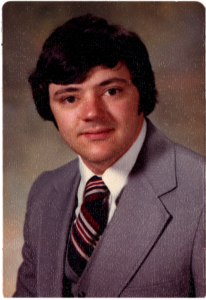
I went to Stonehill College, a small Catholic college south of Boston run by the Holy Cross Fathers. Stonehill wasn’t a big school but had a good feel to it.
Did you look at other schools other than Stonehill?
I looked at Brown and Dartmouth, and almost went, to Dartmouth. The fact that winter at Dartmouth starts in September dissuaded me from going there.
Did Stonehill end up being a good choice for you?
It was a great choice for me. By the end of my sophomore year, I knew almost everyone on campus. I majored in Accounting and minored in Spanish. I also started a Boy Scout troop for neighborhood kids around Stonehill and by my senior year, I was the troop scoutmaster.
After college, was Scouting your only choice.
I never intended Scouting to be a full-time career. I intended to do it for three years and then move on. I always envisioned my first job in Scouting as going into the Peace Corp without leaving the country.
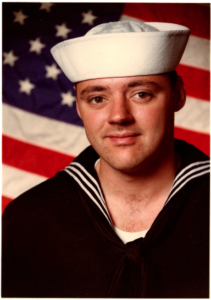
After my three year stint with the Boy Scouts was over I enlisted in the Navy and served on the USS Philadelphia, a nuclear-powered attack submarine. I ran the nuclear reactor on the sub, which wasn’t something many accountants get to do.
When I got out of the Navy in 1990, I intended to find a job in the nuclear power industry. A friend convinced me to interview for an open position in the Boy Scouts in Connecticut. The boy scouts offered me the job the same week a nuclear power plant did. I had to make a choice between changing lives or making electricity.
The decision tormented me because the nuclear power job paid two to three times what the Boy Scout job paid. I saw the opportunity with the Boy Scouts as a more productive use of my time and capabilities and decided to take that job. In hindsight, the big house with the four-car garage would have been nice! But I digress.
How did you get from that job in Connecticut to Chester County?
After three years in the Boy Scout job, I started to look around for other opportunities. I had a chance to take a job with the Boy Scouts in Germany working with the sons of American military personnel serving in Europe. Going to Europe would have been fun, but it would have left me disconnected from the rest of Scouting.
I called a friend who I knew from working summer camp when I was a teenager who happened to be head of development for the New York City Council. He offered me a job working for him in the City. I told him my wife would never agree to move to New York City. He asked me to put my wife on the phone, that he would change her mind. By the end of the conversation, my wife was asking me when we were moving to New York!
New York City was an eye opening experience. I was on the Council’s development team for six years and then became director of camping for the next six years. The Chairman of our Foundation campaign was a guy by the name of Joe Malone, CEO and Chairman of the Equitable Group, which later became AXA. Joe’s office had a sweeping view of Central Park. I told Joe if I had that office, I would spend all my time looking out the window and would get zero work done.
During this time, Boy Scouts had to adjust to a new way of working with young men. How did that impact you?
I learned in New York City that scouting works everywhere and it works for everyone, it just takes the right leaders. We had very good leaders on the exclusive Upper East Side of Manhattan as well as in some of the most impoverished neighborhoods in the Bronx and Bedford-Stuyvesant in Brooklyn.
Leadership made the difference?
It’s all about leadership. If we have the right people running scouting programs, lives are changed in ways that just aren’t possible in other organizations. Even schools and teachers don’t change lives the way Boy Scouts do. Talk to any kid who was a scout, many of them can tell you their scoutmaster’s name but are hard pressed to name their middle school teachers.
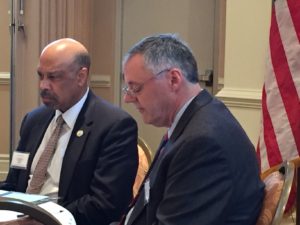
What brought you to Chester County?
In 2011, after a four-year stint raising money for the Boy Scouts in West Chester and Putnam Counties north of New York City, I heard about the Executive Director spot opening up in Chester County. I decided to interview, and the rest is history.
How did your family adjust to the new area?
I feel bad for people who have spent their entire life in Chester County. They don’t know what a remarkable place we have here. We picked the Great Valley School District and looked for homes in the district. My oldest son was starting his junior year in high school the year we moved. He’s a big soccer player, and Great Valley has a great soccer program. He “had” to do scouts and so we found a troop in the Great Valley School District. The first meeting he went to, he discovered there were four guys from the soccer team in the scout troop. By the end of the meeting, he was one of them and felt like he had always been there.
What are your challenges and opportunities for the rest of the year, Charlie?
Our biggest challenge is that every kid has the opportunity to join Scouting and have the chance to take advantage of that opportunity. There are all sorts of surveys on the effects of scouting measuring how much more successful kids involved in scouting are than their peers who didn’t have the chance to do Scouting. Our board and staff are passionate about extending the opportunity to join scouts to every kid.
We’ve expanded our outreach into areas we haven’t been successful before due to cultural lack of scouting awareness as well as areas where economic barriers may exist. We’re being more proactive about speaking out about the benefits of scouting. There was a time when every school district allowed us to go into their schools and talk to the kids about signing up for scouts at lunchtime. For a variety of reasons that opportunity has gone away in some places.
We talk to kids about fun, adventure and friendships that last a lifetime. The message to parents and educators is about character education, community service, an increase in educational success and values that last a lifetime. Preparing for life while having the time of their lives…that’s what Scouting does. It makes going to the office every day not just bearable but truly enjoyable.
I’m convinced our community and country would be a better place, test scores would be higher, and there would be less behavioral issues in the schools if more kids were in scouting. The battles of the past have nothing to do with scouting. We have a Scout Oath and Laws that are plenty good to ensure that we are setting the right example for kids without any kind of discrimination. Scouting is open to all boys who, as the Scout Law states, want to do their best to be Trustworthy, Loyal, Helpful, Friendly, Courteous, Kind, Obedient, Cheerful, Thrifty, Brave, Clean, and Reverent!
What about the PARC Center in Exton which you unveiled last month?
PARC, which stands for Program Activity Resource Campus, is the huge project on our horizon. The project is a game changer for us.
Our office in Westtown is old, outdated and falling apart. The building doesn’t project the image of a strong, vibrant organization. The Tabas family donated 28 acres of non-commercially viable land right on Business Route 30 in Exton to us. As we thought about moving our office there, we thought the property had far more potential than just being our office. The land has fields, woods, wetlands and two creeks running through it. We intend to use the facility as a program, training, and Cub Scout center.
Since PARC is right next to the Chester Valley Trail, we plan on building a path from PARC to the trail allowing people to walk or ride their bikes to the center.
While the Exton Mall is too close to the property for our fifteen-year-old scouts, the land is ideally suited as a program center for our Cub Scouts. Once those eight-year-olds get past the treeline, they’ll be in the wilderness. If that Cub Scout happens to fall into one of the two creeks while he’s wondering around, he’ll be OK if he just remembers to stand up!
The PARC is an opportunity for us to help kids and strengthen the community at the same time. We hope school districts, environmental groups as well as our 130 partners who sponsor scouting across the county, will take advantage of PARC’s classrooms and patch of nature for field trips, retreats, and training.
Finally, Charlie, what is the best piece of advice you ever received?
There have been so many people who have influenced me. If I had to name one person, it would be Bill Dwyer, that camp director I mentioned earlier. Some of the sayings he said have stayed with me including Excellence is the expectation; If you don’t strive for perfection, you settle for mediocrity; The best work harder than the rest; The harder I work, the more luck I have; If you’re going to do something, do it great. I try hard to live up to my potential and do things to the utmost of my ability.
Connect With Your Community
Subscribe to stay informed!
"*" indicates required fields


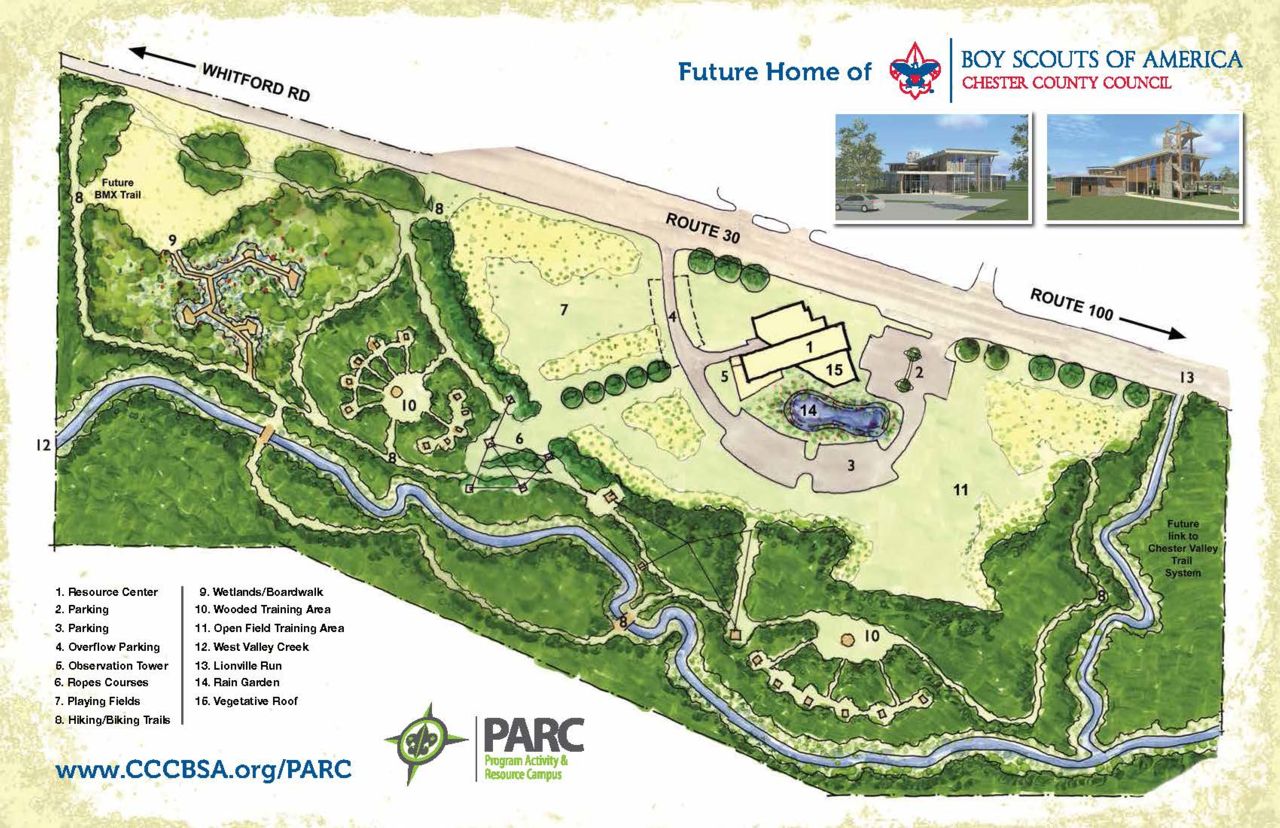













![95000-1023_ACJ_BannerAd[1]](https://vista.today/wp-content/uploads/2023/03/95000-1023_ACJ_BannerAd1.jpg)





























